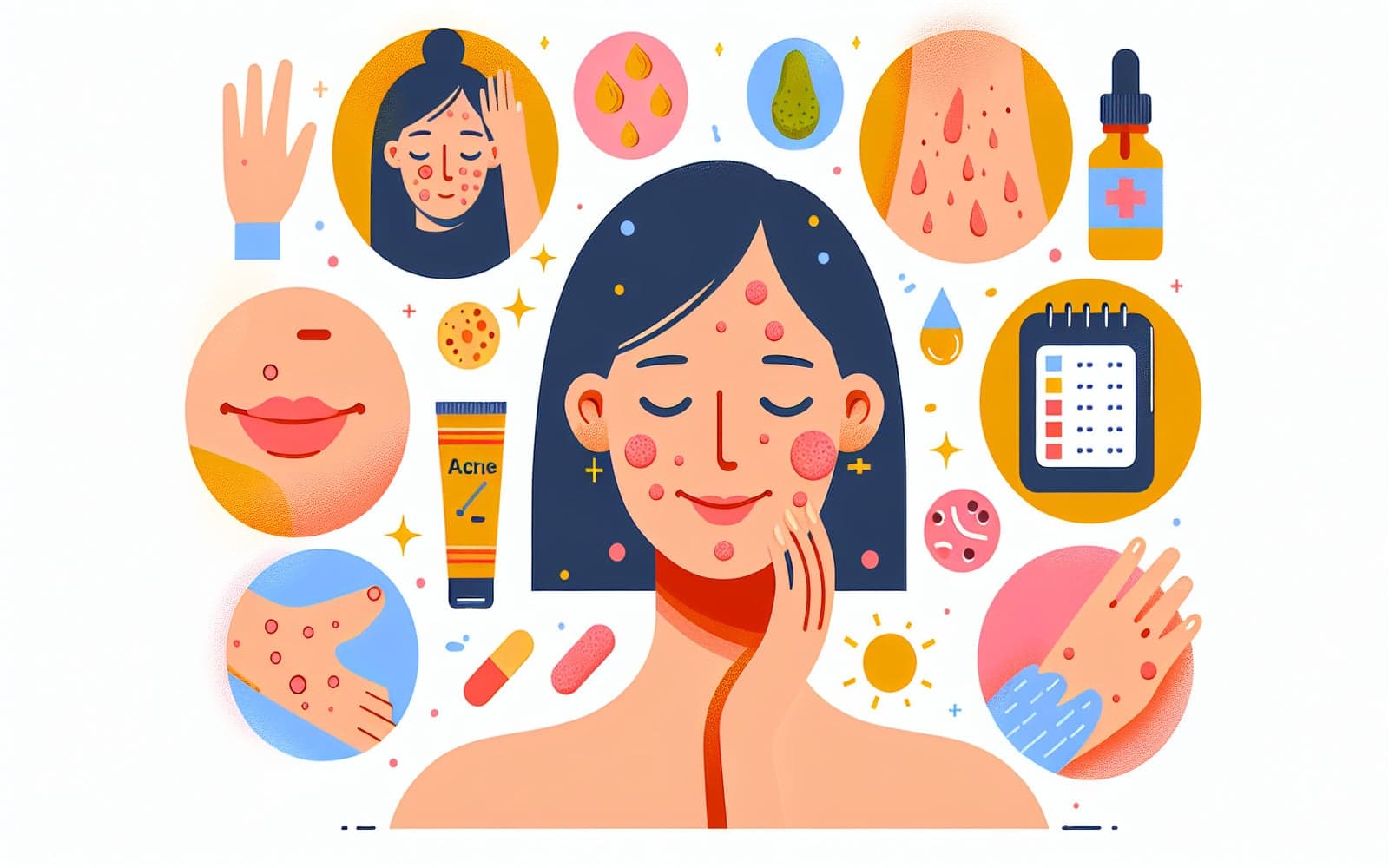Acne Triggers: What Could Be Making Your Skin Break Out?
Published: Mar 24, 2024
Understanding the factors that trigger acne can help you take control of your skin health. Let's explore the surprising influences behind those relentless breakouts.
Contents
Hormonal Changes and Acne
Hormones play a significant role in acne flare-ups, especially during puberty, menstruation, or pregnancy. Androgens increase oil production, which can clog pores and lead to acne. Hormonal imbalances due to conditions like polycystic ovarian syndrome can also cause persistent breakouts.
Dietary Influence
Diet can impact acne, with studies suggesting that high-glycemic foods and dairy may worsen breakouts. Foods that cause rapid spikes in blood sugar, like sugary snacks and white bread, might contribute to acne. Reducing these foods may help improve skin condition.

Stress and Lifestyle Factors
Stress is another major player in acne development. It can increase hormone levels that stimulate oil production, making the skin more prone to breakouts. Other lifestyle factors such as poor sleep and not cleaning your skin properly can also exacerbate acne.
Frequently Asked Questions
Yes, stress can increase hormone levels that lead to acne.
Certain foods may worsen acne, such as high-glycemic foods.
Androgens can increase oil production, leading to acne.
Yes, reducing stress and improving skin care can help.
Key Takeaways
Identifying your acne triggers can lead to more effective management strategies.
Take charge of your breakouts by discussing potential triggers with Doctronic.Related Articles
References
Chiu A, Chon SY, Kimball AB. The response of skin disease to stress: changes in the severity of acne vulgaris as affected by examination stress. Arch Dermatol 2003; 139:897.
Smith RN, Mann NJ, Braue A, et al. The effect of a high-protein, low glycemic-load diet on acne vulgaris: a randomized trial. J Am Acad Dermatol 2007; 57:247.
Always discuss health information with your healthcare provider.

